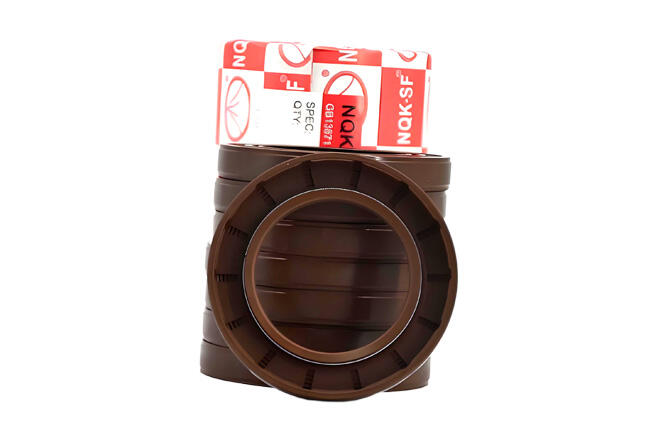In the world of rotating machinery, the smallest components often carry the heaviest responsibility. A gearbox may be built with precision gears, a pump with a perfectly balanced impeller, but if the shaft seal fails, the entire system can be compromised. Lubricant loss, contamination ingress, and unplanned downtime are all too familiar to anyone who has dealt with seal-related failures.
Among the many seal designs, the TC rotary shaft oil seal has earned its place as a versatile and dependable choice. Its dual-lip configuration, one lip retaining lubricant, the other blocking dust—makes it a preferred solution in pumps, electric motors, gearboxes, engines, industrial machinery, robotic arms, construction equipment, wind turbines, metallurgy, chemical processing, hydraulic systems, agricultural machinery, water treatment plants, marine vessels, high-speed trains, automobiles, and heavy-duty trucks.
Understanding the Structure and Materials
A TC seal typically combines a metal case encapsulated in rubber, a primary sealing lip, a dust lip and a garter spring. The metal case ensures rigidity and precise fit in the housing, while the rubber coating improves sealing against the bore. The primary lip maintains a thin oil film against the shaft surface, preventing leakage. The dust lip shields the system from external contaminants such as dust, water, and abrasive particles. The garter spring, though small, plays a critical role in maintaining consistent radial pressure over time.
Material selection. NBR (Nitrile Rubber) offers good wear resistance and compatibility with mineral oils for standard temperature ranges. FKM (Fluoroelastomer) withstands high temperatures and aggressive chemicals, making it suitable for harsh environments. HNBR (Hydrogenated Nitrile Rubber) combines oil, heat, and ozone resistance for heavy-duty, high-load applications. Most TC seals operate within a pressure range of 0.03, though specialized designs can handle higher pressures when paired with optimized bearing clearance and lubrication systems.

Selection Beyond the Datasheet
While catalog specifications are useful, real-world selection requires a deeper look at the operating environment. A gearbox in a coastal installation may need a dust lip with enhanced salt spray resistance. Mining equipment, exposed to large, abrasive dust particles, may require reinforced lip materials and stronger spring tension. Distributors often ask, “Can one model fit multiple machines?” From an inventory perspective, that’s appealing. But in practice, tailoring the seal to the application reduces the risk of premature failure and protects long-term customer relationships.
Supply Chain Realities
In the market, lead time and consistency are non-negotiable. When a production line is down, every hour counts. This is where brands like NQKSF have built their reputation, offering rapid shipment of standard parts with over ten thousand specifications of O-rings and oil seals in stock, ready to meet urgent demands. For non-standard requirements, NQKSF provides end-to-end customization, from material selection and structural design to production testing, ensuring the seal is precisely matched to the operating conditions. With over 30 years of industry experience, their technical team doesn’t just sell products—they help optimize sealing systems, reduce maintenance costs, and improve equipment reliability.
Strength Backed by Credentials
For wholesalers and distributors, supplier credibility matters. NQKSF operates a fully equipped manufacturing facility, is recognized as a leader in the sealing industry, and maintains a complete range of in-stock models. Their products are shipped to over 80 countries, and the brand is acknowledged as a globally respected name. The company has been awarded Provincial Technology Innovation Center, Specialized and Innovative Enterprise, and High-Tech Enterprise status, and is recognized as a leading company in a specialized industrial cluster. These credentials are not just titles—they reflect the capacity to deliver consistently, whether the order is large, urgent, or highly specialized.
A TC rotary shaft oil seal may be a small part, but it plays a decisive role in keeping machinery running smoothly. For buyers, choosing the right supplier is not just about the immediate transaction—it’s about securing reliability, protecting customer trust, and ensuring that every machine in the field performs as intended.
 Hot News
Hot News